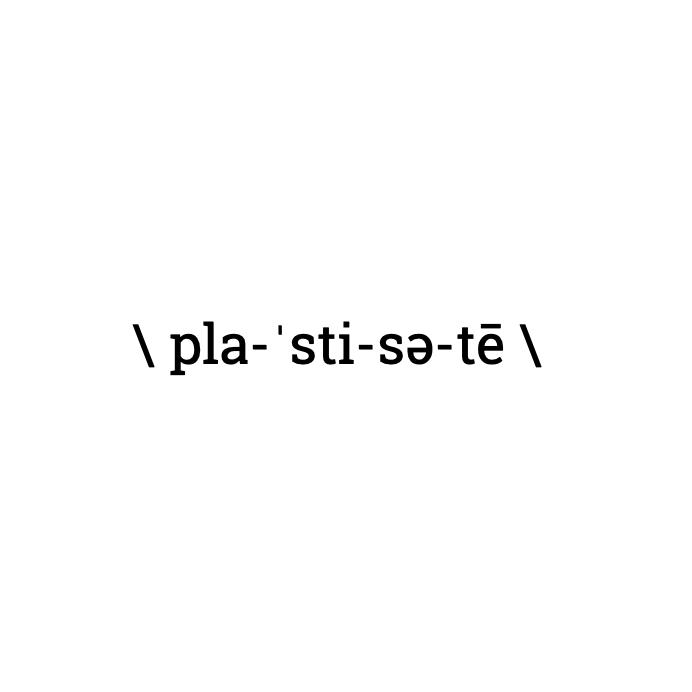PLASTICITY IN TRANSFORMATIVE LEADERSHIP: CULTIVATING ADAPTABILITY AND RESILIENCE
\ pla-ˈsti-sə-tē \
In the world of organizational transformation, plasticity refers to the adaptability and resilience of a leader. However, before we explain this concept in more detail, it is first worth looking at the conventional meaning of the term. In the world of materials science, “plasticity” refers to the ability of a substance to retain a shape attained by pressure deformation. But the concept extends far beyond the physical. From the perspective of biology, it denotes an organism’s capacity to modify its behavior according to varying environmental conditions. And in the realm of neuroscience, it signifies the brain’s extraordinary ability to continuously alter its neural pathways and synapses in response to experience or injury.
Drawing from these diverse fields, we can redefine plasticity in a broader, more holistic sense: the ability to adapt to changing conditions while simultaneously withstanding potential disruptions or challenges. And in an era marked by rapid change and uncertainty, this quality has never been more relevant, or more necessary.
At SHIFTSCHOOL, we focus on developing plasticity in Transformative Leadership through three core elements: Adaptive Judgement, Reflective Awareness, and Social Sensemaking:
Adaptive Judgement:
Questioning Beliefs and Overcoming Biases
The first step towards enhancing plasticity is the cultivation of Adaptive Judgement. Adaptive Judgement involves questioning our beliefs, overcoming cognitive biases, and adapting our opinions accordingly. It requires the ability to reassess our assumptions, challenge our perspectives, and remain open to new information and ideas. This is crucial in navigating the complexities of our ‘post-truth’ world and in making informed, unbiased decisions.
Reflective Awareness:
Conscious Understanding of the Self
The second component of plasticity is Reflective Awareness. Reflective Awareness is about recognizing our strengths and weaknesses, understanding our emotions and motivations, and becoming aware of our impact on others. By cultivating Reflective Awareness, we can better understand our responses to change, identify areas for personal growth, and improve our relationships with others.
Social Sensemaking:
Empathic Interaction with a Group
The third key element is Social Sensemaking. That is to say, the art of gaining clarity by empathically interacting with a group. This involves listening deeply, understanding diverse perspectives, and co-creating shared understanding and solutions. By leveraging Social Sensemaking, we can harness the collective intelligence of our teams and organizations, and navigate complex issues more effectively.
Harnessing Plasticity for Transformation
These three elements – Adaptive Judgement, Reflective Awareness, and Social Sensemaking – are interconnected and mutually reinforcing. Together, they foster a higher level of plasticity that enables us to adapt to change while maintaining resilience. In other words, we become more effective as transformative leaders.
In conclusion, plasticity is not just a scientific concept. It’s a critical capacity that each of us, individually and collectively, needs to cultivate for navigating the complexities of the 21st century. Whether we’re talking about personal development, organizational change, or societal transformation, plasticity is the key to thriving in an ever-changing world. As we navigate this rapidly evolving landscape, let us remember to question, reflect, and interact empathically with those around us, nurturing our ability to adapt and grow.
A few groundbreaking books on how to cultivate adaptability and resilience
Here’s a few of the books that I used to dive into this exciting topic. While these recommendations are by no means exhaustive, they provide a sufficient foundation for understanding this topic. They reflect what I consider to be a good starting point for exploring the realms of Plasticity.
“Mindset: The New Psychology of Success” by Carol S. Dweck – This book explores the concept of ‘mindset’ and how our beliefs about our abilities can impact our capacity to grow and change.
“Thinking, Fast and Slow” by Daniel Kahneman – Kahneman explores the two systems that drive the way we think—System 1, which is fast and intuitive, and System 2, which is slow and deliberate. Understanding these can help us make better decisions and avoid cognitive biases.
“Presence: Bringing Your Boldest Self to Your Biggest Challenges” by Amy Cuddy – This book offers insight into the power of self-awareness and presence in personal and professional situations.
“The Fifth Discipline: The Art and Practice of the Learning Organization” by Peter M. Senge – Senge introduces the concept of the ‘learning organization’, which encapsulates many of the ideas of adaptability and resilience in leadership and organizational culture.
PLASTICITY is the fourth dimension in the SHAPE® Framework. I encourage you to delve deeper into the subject and discover for yourself what Transformative Leadership truly means.
Open the FLEXICON and discover more key principles of transformation.






